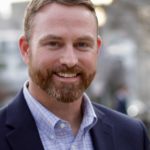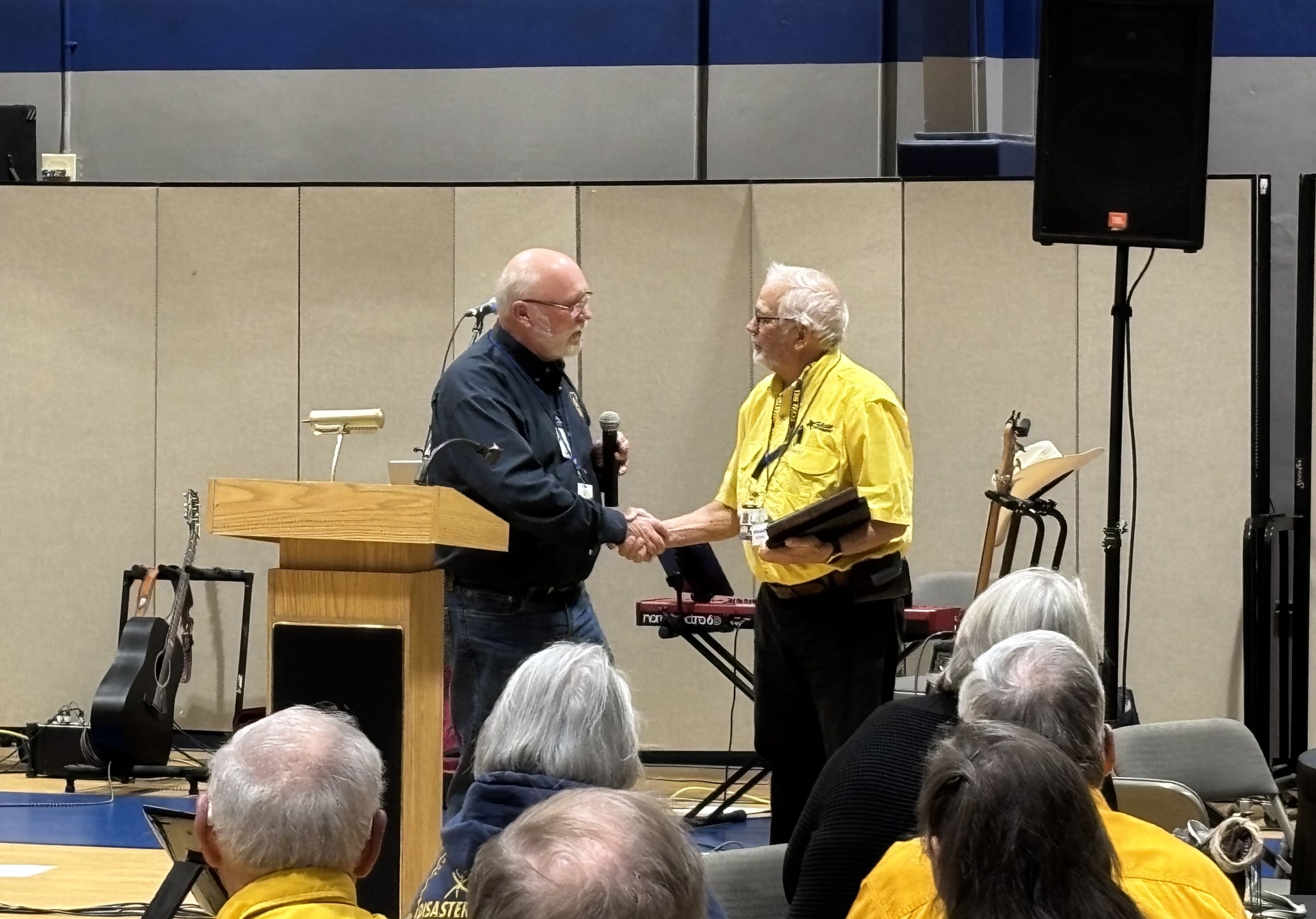Un abogado de inmigración advierte: no hay que entrar en pánico todavía
El abogado de inmigración de Dallas, Jered Dobbs, ha visto un aumento en la cantidad de personas que buscan sus servicios desde que la administración Trump retomó el poder hace tres semanas.
El miedo es “el factor impulsor” en casi todas estas llamadas, dijo.
Dobbs habló recientemente con una iglesia del área de Dallas, y en un par de otros lugares que sirven a inmigrantes, para disipar algunos de estos temores y ayudar a brindar claridad sobre la avalancha de acciones ejecutivas relacionadas con la inmigración.
The Baptist Standard le preguntó sobre los tipos de preguntas que la gente está haciendo.
Dobbs dijo que se están haciendo muchas preguntas relacionadas con las órdenes ejecutivas y la iglesia.
La gran pregunta
“Una de las grandes es: ‘¿Puede ICE entrar a una iglesia o buscar a alguien mientras está en la iglesia?’”
Una de las órdenes ejecutivas “era esencialmente para levantar una política de la era Biden” que impedía que ICE ingresara a ciertas áreas sensibles como iglesias y hospitales, explicó Dobbs.
Entonces, la respuesta es sí, “técnicamente ICE podría hacer eso”. Sin embargo, “tienen que tener la aprobación de los supervisores para hacer algo en ese sentido. Y siendo realistas, creo que va a ser muy raro que veamos algo así”.
Más allá del requisito de la aprobación del supervisor, otras restricciones legales podrían impedir que ICE ingrese a una casa de culto, explicó.
“En términos generales, una entidad privada no tiene que permitir la entrada de ICE a menos que tenga una orden penal firmada por un juez federal. No pueden simplemente entrar a la fuerza sin la documentación adecuada de un juez federal, lo que va a ser algo bastante raro”.
En general, si bien es legalmente posible y “podría ocurrir en circunstancias limitadas, particularmente si hay alguien que es extremadamente peligroso”, Dobbs dijo que no creía que sea “muy probable” que ICE ingrese a las iglesias.
La misma política estaba en vigor durante la última administración de Trump, por lo que no es una política nueva, dijo Dobbs. “Es solo una repetición de una vieja política, y aun así, no recuerdo haber oído hablar de que el ICE haya entrado a la fuerza en una iglesia ni nada parecido”.
Señaló que no puede decir que “definitivamente no sucederá”, pero “el ICE sabe que da mala imagen irrumpir físicamente en las iglesias”.
“La gente, incluidos muchos de los partidarios del presidente, no van a tolerar eso”, explicó Dobbs.
Incluso con un arresto fuera de una iglesia en Georgia que se informó en las últimas semanas, Dobbs todavía animaría a los inmigrantes a seguir asistiendo a la iglesia, al tiempo que ejercen una mayor precaución en general y se aseguran de conocer sus derechos.
“Lo que le he estado diciendo a la mayoría de mis clientes es: ‘Creo que está bien. No tengan miedo de ir a la iglesia’. Creo que la probabilidad de que algo suceda es bastante escasa, en general”, aunque la política técnicamente significa que podría suceder.
Haga un plan
En caso de que el ICE se presente, las iglesias deben tener políticas establecidas sobre qué hacer, especialmente las iglesias con mayoría de inmigrantes.
Deben haber decidido cuál será su respuesta con sus propios equipos de seguridad y qué debe hacer el personal en términos de permitir la entrada.
Sería prudente tener algún tipo de plan establecido, para que “no estén apurados en el momento”.
Para estar preparados, las iglesias y sus miembros deben conocer sus derechos legales en términos de permitir la entrada o denegarla.
Un ejemplo de una de esas políticas podría ser pedirle al ICE que espere afuera hasta que termine el servicio, y luego podrían hacer lo que tengan que hacer.
Dobbs explicó que en términos de aplicación de la ley de inmigración (permitir que el ICE intente ingresar a iglesias u hospitales), lo que Trump ha hecho está dentro de la ley.
Lo que no está dentro de la ley, señaló Dobbs, es “el intento de terminar unilateralmente con la ciudadanía por nacimiento. Eso está casi seguro fuera de la ley, y al menos uno o dos jueces federales ya han dictado sentencia en consecuencia.
“Esa acción es definitivamente inconstitucional y nunca se ha sostenido lo contrario”, dijo.
En términos de hacer cumplir las leyes que existen o permitirle al ICE más libertad para hacer cumplir las leyes de inmigración y realizar más detenciones, las acciones de Trump son legales, “pero la ciudadanía por nacimiento, ciertamente no”.
Formas de ayudar
Las iglesias pueden apoyar a los inmigrantes siendo un recurso para obtener información precisa. “Hay mucha desinformación en este momento”, señaló Dobbs, “lo que está provocando mucha ansiedad en la comunidad inmigrante”.
Es importante asegurarse de que la iglesia tenga información precisa o sepa dónde dirigir a los miembros inmigrantes para que encuentren información precisa, señaló.
Dobbs dijo que los abogados de inmigración son un recurso obvio para recomendar. Además, las iglesias pueden alentar a los miembros de la iglesia a no creer todo lo que ven en las redes sociales.
Se debe alentar a los inmigrantes a evitar trabajar con los llamados “notarios”, personas que no son abogados pero que se promocionan como “asistentes de inmigración”.
Muchos notarios se “dedican a la práctica no autorizada de la ley”, dijo Dobbs. “Además de tener información incorrecta o incompleta, a veces presentarán un documento incorrecto”.
Las iglesias pueden ayudar a los inmigrantes en sus congregaciones ayudándolos a comprender cómo distinguir entre notarios y abogados de inmigración con licencia.
Además de los abogados de inmigración privados, las organizaciones paraeclesiásticas que apoyan la inmigración también pueden ser buenos recursos y socios.
En Dallas, For the Nations Refugee Outreach tiene un especialista en inmigración calificado en su personal. En general, para obtener asesoramiento específico sobre inmigración, Catholic Charities es una fuente confiable de asesoramiento y apoyo en materia de inmigración.
Además, el Centro para el Compromiso Cultural de los Bautistas de Texas creó un breve documento que describe “lo que las agencias del gobierno federal pueden y no pueden hacer legalmente, así como las libertades, los derechos y las obligaciones de las iglesias”, señaló el director ejecutivo Julio Guaneri en su correo electrónico semanal.
Las órdenes ejecutivas relacionadas con la inmigración han afectado a las iglesias bautistas de Texas. Dobbs dijo que ha oído hablar de miembros de origen hispanohablante, en su propia iglesia y en varias otras iglesias bautistas de Texas, que tienen miedo de ir a la iglesia.
Las iglesias de cultura mayoritaria pueden ayudar a apoyar a las iglesias compuestas en gran parte por inmigrantes al saber quién en sus iglesias podría tener conocimientos y habilidades que podrían ser valiosos para los inmigrantes y capaces de ayudar en las iglesias de inmigrantes cercanas.
“Lo que he tratado de decirle a la gente es que creo que la comunidad hispanohablante, la comunidad inmigrante, ciertamente necesita ejercer más cautela ahora que tenemos estas nuevas órdenes que bajo la administración presidencial anterior, pero también les he dicho que no creo que necesariamente deban presionar el botón de pánico tampoco”.
La retórica sobre deportaciones masivas y ICE o el ejército arrasando las calles, “no estamos viendo mucho de eso”.
Dobbs dijo que eso se debe a que ICE, como cualquier organización burocrática, tiene recursos limitados. Tienen un número limitado de agentes de cumplimiento, lugares limitados para retener a los detenidos y una capacidad limitada de aviones para deportaciones.
“Y de hecho, ya, solo en estas dos semanas, han agotado todo su espacio de camas en los Estados Unidos. Ya se han llenado.
“Están al 109 por ciento de su capacidad y ya han comenzado a liberar a los inmigrantes que han detenido porque no tienen dónde ponerlos”, señaló Dobbs.
Dobbs dijo que había predicho cuando la administración se centró por primera vez en las deportaciones, que esto es lo que sucedería. Pensó que “detendrían a muchas personas durante unas semanas, y luego no tendrían ningún otro lugar donde ponerlas, y eso es exactamente lo que sucedió”, recordó Dobbs.
Tome decisiones inteligentes
Sí, tenga cuidado, pero “lo mejor que pueden hacer la mayoría de los inmigrantes es evitar problemas con la policía”. Los inmigrantes que son arrestados son los que probablemente terminarán detenidos.
Los inmigrantes deben tener cuidado con las personas que los rodean y evitar a los “alborotadores”, dijo. Hacerlo ayudará a evitar ser incluido en una acción de cumplimiento por estar en el lugar equivocado en el momento equivocado.
Dobbs señaló una tendencia reciente de cumplimiento de la ley del ICE “enfocándose en personas fácilmente localizables, incluidas aquellas que tienen monitores de tobillo del ICE y aquellas que vienen a los controles del ICE”.
Estos tienden a ser “recién llegados a los EE. UU. o aquellos que ya han sido colocados en el proceso de deportación, también conocido como Tribunal de Inmigración”.
“He visto un aumento de las detenciones por parte del ICE para ambas poblaciones en las últimas dos semanas, aunque no en iglesias ni cerca de ellas”, dijo Dobbs.
Los inmigrantes deben comprender que sus posibilidades de evitar la deportación solo pueden mejorar si ya están en el camino hacia el estatus legal.
Si bien “simplemente demostrar que está trabajando con un abogado de inmigración para obtener un estatus legal no necesariamente evitará que el ICE tome medidas de cumplimiento”, dependiendo de qué tan avanzado esté el caso en el camino hacia el estatus legal, estar en proceso podría marcar la diferencia.
Podría ayudar a convencer al ICE para que ponga en libertad a una persona bajo fianza de inmigración a la espera de un juicio de inmigración, o podría facilitar la defensa de la persona ante el tribunal de inmigración.
“Nunca es malo estar en el camino hacia el estatus legal”, dijo Dobbs.








